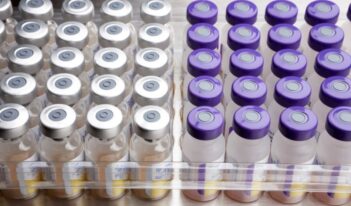
Despite delayed government action, manufacturers can do more to reduce toxic metals in baby food.
An investigation by the U.S. Congress revealed that baby food produced by several major U.S. manufacturers contained elevated amounts of toxic metals. The investigation identified high concentrations of cadmium, lead, mercury, and arsenic, which present long-term health risks to growing toddlers.
The U.S. Subcommittee on Economic and Consumer Policy launched its investigation after reports of prevalent heavy metal contamination surfaced. The subcommittee requested data on testing results, internal policies, and standards for heavy metals from seven major U.S. baby food manufacturers. Gerber, Beech-Nut, Hain Celestial Group, and Nurture Inc. shared the required data, but Campbell, Sprout, and Walmart were reportedly uncooperative and did not disclose any information.
The products examined contained shockingly high levels of contaminants, especially compared to safety limits that apply for other products regulated by the U.S. Food and Drug Administration (FDA) and U.S. Environmental Protection Agency. For example, relative to acceptable levels in drinking water, toxic heavy metal counts in baby food were staggeringly higher: five times higher for mercury, 69 times higher for cadmium, 91 times higher for arsenic, and 177 times higher for lead.
The report indicated that manufacturers’ testing practices and standards were inadequate. Companies regularly bypassed finished product testing and typically only evaluated ingredients and whether additives high in toxic metals were used. In addition, companies rarely conducted testing for mercury.
Infants who consume tainted baby food face a significant toxic exposure risk. Due to their underdeveloped filtering systems, arsenic, cadmium, mercury, and lead can have adverse biological effects on children. As these heavy metals build up in bones and tissues, they affect the brain and nervous system, eventually leading to irreversible damage. Experts have linked exposure to toxic heavy metals at young ages with low IQs, diminished cognitive function, and neurologic conditions such as ADHD and autism.
In April 2021, FDA introduced its “Closer to Zero” action plan to reduce toxic metals in baby food products to be “as low as possible.” The plan includes four steps and seeks to set progressively appropriate safety levels until 2024 or beyond.
The plan’s four-step structure is redundant and encumbers progress. Since information on adequate safety levels is already available from respected sources, the plan’s initial steps of drafting levels and consulting with stakeholders are rendered unnecessary. Focusing on the final two stages that target achievability and implementation would allow for setting safety levels earlier than 2024 and ensuring infant nutrition security faster.
Presently, the only FDA regulation for heavy metals in baby food limits arsenic in infant rice cereal at 100 parts per billion (ppb). Even that standard is highly contested because lower levels of arsenic are achievable and could increase the safety of infant rice cereal.
Overall, insufficient institutional regulations have not made it worthwhile for manufacturers to implement comprehensive safety measures that would require costly capital expenses.
In March 2021, Representative Raja Krishnamoorthi (D-Illinois), who chairs the Subcommittee on Economic and Consumer Policy, introduced the Baby Food Safety Act, which would establish stricter toxic metal limits for manufacturers and require increased institutional oversight from FDA. The new proposed safety limits in the bill would require FDA to reduce mercury amounts in baby food to 2 ppb, cadmium and lead to 5 ppb each, and arsenic to 10 ppb.
Concurrently, FDA would conduct periodic reviews to ensure regulatory compliance, and manufacturers would phase out unsafe ingredients and publish testing results twice a year. The U.S. Centers for Disease Control and Prevention would also raise public awareness about the risks of toxic heavy metal exposure from contaminated baby food.
The bill’s pending status is not encouraging in light of a follow-up report from the subcommittee in September 2021 that indicated broader contamination. Reacting to the slow progress, a coalition of 23 state attorneys general petitioned FDA to accelerate its plan’s timeline and adopt actionable levels by 2022, according to the bill’s recommendations.
Even while awaiting legislative and regulatory action, manufacturers can adopt several sustainable practices to reduce heavy metal concentrations and prevent contamination.
Ingredients should be obtained from ethical suppliers with transparent practices, or from crops grown on land with a low concentration of heavy metals. Manufacturers should prioritize crops with a lower uptake of toxic metals and use natural additives to limit environmental contamination further.
Internally, improving hiring and employment standards would help food companies retain valuable professionals. Keeping production facilities clean around the clock is tantamount. Qualified staff should be able to follow high-quality processes that accord with the Food Safety Modernization Act and with hazard analysis critical control point principles.
Product labels should be clear and contain precise information on heavy metal contents. Regular testing would ensure that heavy metal levels are kept low according to regulations. Baby food sample testing for toxic metals is relatively inexpensive, and manufacturers can obtain good deals with reliable labs that are mutually beneficial. They can also test food packaging for contaminants through a government-approved third-party certified laboratory.
Finally, when contamination is evident, manufacturers should voluntarily issue product recalls, taking an essential step toward upholding their moral imperative and rebuilding the public’s confidence in their products.
Eliminating toxic metals is challenging because crops naturally absorb them from the environment and from other resources used in crop cultivation. Even so, baby food companies are ethically obliged to provide safe products that do not threaten the health of vulnerable infants.




